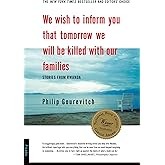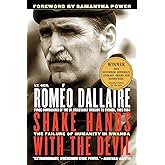
Enjoy fast, free delivery, exclusive deals, and award-winning movies & TV shows with Prime
Try Prime
and start saving today with fast, free delivery
Amazon Prime includes:
Fast, FREE Delivery is available to Prime members. To join, select "Try Amazon Prime and start saving today with Fast, FREE Delivery" below the Add to Cart button.
Amazon Prime members enjoy:- Cardmembers earn 5% Back at Amazon.com with a Prime Credit Card.
- Unlimited Free Two-Day Delivery
- Streaming of thousands of movies and TV shows with limited ads on Prime Video.
- A Kindle book to borrow for free each month - with no due dates
- Listen to over 2 million songs and hundreds of playlists
- Unlimited photo storage with anywhere access
Important: Your credit card will NOT be charged when you start your free trial or if you cancel during the trial period. If you're happy with Amazon Prime, do nothing. At the end of the free trial, your membership will automatically upgrade to a monthly membership.
Buy new:
$17.82$17.82
Ships from: Amazon Sold by: CollegeStreet
Save with Used - Good
$7.37$7.37
Ships from: Amazon Sold by: Vandelay Ventures

Download the free Kindle app and start reading Kindle books instantly on your smartphone, tablet, or computer - no Kindle device required.
Read instantly on your browser with Kindle for Web.
Using your mobile phone camera - scan the code below and download the Kindle app.



 Audible sample
Audible sample A Problem from Hell: America and the Age of Genocide Paperback – May 6, 2003
Purchase options and add-ons
Winner of the 2003 Pulitzer Prize For General Nonfiction National Book Critics Circle Award Winner
In her award-winning interrogation of the last century of American history, Samantha Power -- a former Balkan war correspondent and founding executive director of Harvard's Carr Center for Human Rights Policy -- asks the haunting question: Why do American leaders who vow "never again" repeatedly fail to stop genocide? Drawing upon exclusive interviews with Washington's top policy makers, access to newly declassified documents, and her own reporting from the modern killing fields, Power provides the answer in "A Problem from Hell" -- a groundbreaking work that tells the stories of the courageous Americans who risked their careers and lives in an effort to get the United States to act.
- Print length644 pages
- LanguageEnglish
- PublisherHarpPeren
- Publication dateMay 6, 2003
- Dimensions5.25 x 1.25 x 8 inches
- ISBN-100060541644
- ISBN-13978-0060541644
Book recommendations, author interviews, editors' picks, and more. Read it now.
Frequently bought together

Customers who viewed this item also viewed
Editorial Reviews
Review
“An angry, brilliant, fiercely useful, absolutely essential book.” (The New Republic)
“Agonizingly persuasive.” (New York Review of Books)
“[A Problem From Hell] challenges our conscience and should influence what we do in the future.’’ (Lawrence H. Summers, President, Harvard University)
“Magisterial.” (The New Yorker)
“Disturbing...engaging and well written…will likely become the standard text on genocide prevention.” (Foreign Affairs)
“Compelling…Power leads her readers on a long and often gut-wrenching journey…. Power’s book raises vital questions.” (Reason)
“[Power] is one of the most striking talents to emerge in the human rights field in a long time.” (Aryeh Neier, founder of Human Rights Watch)
“One of those rare books that can change one’s thinking...very painful reading, but it has to be read.’’ (Former UN Ambassador Richard Holbrooke)
“A history of our country that has never before been told... it should change the way we see America..” (Doris Kearns Goodwin, author of No Ordinary Time: Franklin and Eleanor Roosevelt: The Home Front in World War II)
“This is a moving account of how millions of lives were lost.” (Former Senate Majority Leader George J. Mitchell (D-Maine))
“A serious and compelling work... should be read by policy makers everywhere.” (Paul M. Kennedy, Dilworth Professor of History and Director, International Security Studies, Yale University)
“Groundbreaking... Power elegantly makes her case.” (Newark Star Ledger)
“Brilliantly conceived, superbly researched, mixing passion and erudition--it must be placed in the ‘must read’ category.” (Denver Post)
“A damning indictment of American passivity in the face of some of history’s worse crimes. (Newsweek International)
“The emotional force of Power’s argument is carried by moving, sometimes almost unbearable stories of the victims and survivors.” (Publishers Weekly (starred review))
“Forceful… Power tells this long, sorry history with great clarity and vividness.” (Washington Post)
“Power writes with an admirable mix of erudition and passion... focuses fiercely on the human costs of indifference and passivity....” (Stanley Hoffmann, Buttenwieser University Professor, Harvard University)
“Samantha Power has written one of those rare books that is truly as important as its subject.” (Philip Gourevitch, We Wish To Inform You That Tomorrow We Will Be Killed With Our Families: Stories from Rwanda)
“Avoids partisan finger-pointing [and] is a clarion call for America to remain an engaged moral power.” (Weekly Standard)
“Bracing...Power [is] the new conscience of the U.S. foreign-policy establishment.” (Time magazine)
About the Author
Samantha Power is a foreign policy columnist at Time magazine. She is the Anna Lindh Professor of Practice of Global Leadership and Public Policy at Harvard's John F. Kennedy School of Government, where she was the founding executive director of the Carr Center for Human Rights Policy. She is a recipient of the National Magazine Award and the Pulitzer Prize, and she lives in Winthrop, Massachusetts.
Product details
- Publisher : HarpPeren; Reprint edition (May 6, 2003)
- Language : English
- Paperback : 644 pages
- ISBN-10 : 0060541644
- ISBN-13 : 978-0060541644
- Item Weight : 0.01 ounces
- Dimensions : 5.25 x 1.25 x 8 inches
- Best Sellers Rank: #2,444,097 in Books (See Top 100 in Books)
- #908 in Jewish Holocaust History
- #11,490 in United States History (Books)
- Customer Reviews:
About the author

Samantha Power is a leading global voice on human rights and international affairs. She served for four years as President Barack Obama’s human rights adviser and then, from 2013 to 2017, in his Cabinet and as US Ambassador to the United Nations. Power is the author of several books, including the Pulitzer Prize-winning ‘A Problem From Hell’: America and the Age of Genocide, and has been named one of TIME’s ‘100 Most Influential People’ and one of Forbes’ ‘100 Most Powerful Women’. Currently a professor of practice at Harvard Law School and Harvard Kennedy School, she lives in Massachusetts with her husband, Cass Sunstein, and their two children. Power immigrated to the United States from Ireland at the age of nine.
Customer reviews
Customer Reviews, including Product Star Ratings help customers to learn more about the product and decide whether it is the right product for them.
To calculate the overall star rating and percentage breakdown by star, we don’t use a simple average. Instead, our system considers things like how recent a review is and if the reviewer bought the item on Amazon. It also analyzed reviews to verify trustworthiness.
Learn more how customers reviews work on AmazonCustomers say
Customers find the book well-written and consider it essential reading, praising its meticulous research and scholarly approach. The book provides excellent coverage of genocide history, with one customer highlighting its detailed discussions of the Armenian genocide, while others appreciate its insights into mass atrocities.
AI-generated from the text of customer reviews
Select to learn more
Customers find the book well written and consider it a must-read for every human being.
"...Power, a highly regarded scholar in this field, has compiled a stellar detailing of the genocides of the 20th century...." Read more
"...This is a good read….by the end one is inclined to think we might have made a little progress...." Read more
"...The obvious strengths of the book are its highly readable accounts of the selected genocides that Power decided to cover, and a strong concluding..." Read more
"...Good reading for those interested in humanity and the injustice so often done while the international community stands by-..." Read more
Customers find the book insightful and meticulously well-researched, describing it as an essential scholarly work.
"...This book is remarkably in-depth as to its scope, and is a perfect introduction into the grisly field of genocide studies...." Read more
"...and into the Khmer Rouge atrocities in Cambodia, and in a very methodical thoughtful way, and includes the efforts and difficulties in the original..." Read more
"...The author's accountings via well-referenced notes & bibliography provides good timelines of widely publicized atrocities as they took place,..." Read more
"...Those sections are written both succinctly and passionately, and do an excellent job of communicating both the scope of what was happening on the..." Read more
Customers appreciate the book's historical content, describing it as an excellent history of genocide and a seminal work in the field of genocide policy. One customer specifically mentions detailed discussions of the Armenian genocide, while another notes its comprehensive coverage of mass atrocities.
"...in-depth as to its scope, and is a perfect introduction into the grisly field of genocide studies...." Read more
"...It is concerned with the history of genocide in the twentieth century and in particular the role that the United State has played in the efforts to..." Read more
"...she has led me through the pre-WW1 Turk/Armenian genocide, through the holocaust, and into the Khmer Rouge atrocities in Cambodia, and in a very..." Read more
"...Problem from Hell" Samantha Power presents an engaging analysis of selected genocides from the 20th century, and America's complicit role in..." Read more
Reviews with images
Arrived damaged
Top reviews from the United States
There was a problem filtering reviews. Please reload the page.
- Reviewed in the United States on June 18, 2011This book essentially asks one question: should political considerations be divorced from or an inherent part of the consideration as to whether the United States should intervene into a foreign genocide?
Power, a highly regarded scholar in this field, has compiled a stellar detailing of the genocides of the 20th century. This book is remarkably in-depth as to its scope, and is a perfect introduction into the grisly field of genocide studies. Power details the battles of Raphael Lemkin to get the word "genocide" introduced into common parlance. She then moves to detail the ratification of the genocide convention by the United Nations and the subsequent refusal of the United States to sign it, despite previous genocides (also discussed) in Turkey during WWI and, of course, Nazi Germany during WWII.
Let me be clear. This is NOT a book about the Holocaust. We have all heard the chilling tales and the despicable actions committed during this period. Power does detail the Holocaust in some respects, but she does so more to explain its place historically as a basis for future genocide considerations. Essentially, then, this book does the following: Power details the establishment of the word "genocide" and the historical context for the term. Then, she details the first case of modern genocide during Pol Pot's regime in Cambodia, followed by the genocide of Saddam Hussein against his own people in Iraq. The plight of the Kurds and Cambodians is discussed as relating to this historical context. In this respect, it is crucial to note that the subsequent assertion that Hussein committed genocide set the standard that one did not need to move beyond one's own country's boundaries to commit the atrocity. Following, Power engages in discussion of the genocides in the Balkans (Yugoslavia, Kosovo, etc.) and, of course, Rwanda.
What is chilling is that the international community continues to determine whether intervening in a genocide is worth the political capital expended in the effort. Power seeks to remedy this question, asserting not only that genocide should be stopped because it is the morally right thing to do, but also because it provides clear political capital benefits. This book is a chilling introduction to a grisly subject written by a master.
- Reviewed in the United States on May 8, 2018Greetings Amazonians,
Samantha Power’s “A Problem from Hell” is a good read. It is concerned with the history of genocide in the twentieth century and in particular the role that the United State has played in the efforts to deal with the problem. There is a lengthy and interesting discussion of Raphael Lemkin who coined “genocide” and worked for the abolition of genocide and the adoption of the Genocide Convention throughout his adult life.
The book provides detailed discussions of the Armenian genocide, the Holocaust and genocide of the Slavs during WWII, the Cambodian genocide of the late 1970's, the genocide of the Kurds in Iraq in late ‘80s and early ‘90s, the Rwandan genocide of the ‘90s, and the genocides associated with the Balkans of the ‘90s.
I was surprised to learn that the Carter administration was disinterested in and unresponsive to concerns about the events in Cambodia even to the point of choosing to support recognition of the KR regime in the UN as opposed to the Vietnamese invaders who had ended the genocide and forced the KR into the mountains.
In a very similar fashion, the Reagan and Bush administrations ignored events in Iraq until it suited the purposes of the US to do otherwise. The Clinton Administration ignored the genocide in Rwanda and even derailed an early agenda coming from the ground which suggested a genocide was being planned and might be prevented.
The Clinton Administration eventually responded to the Serbs’ genocides first under Warren Christopher after much blood had been spilled and considerable political pressure applied by Congress, and finally with Madeleine Albright as Secretary of State the US and other Western powers effectively stopped a genocide before it started.
Warren Christopher ends up looking pretty bad in this narrative. And, until Albright, the US looks like a nation motivated by financial and diplomatic interests to such an extent that we are more than willing to spend days, weeks months, and years splitting hairs over whether or not this or that is genocide while innocent people are raped and murdered by the thousands by way of an established policy.
This is a good read….by the end one is inclined to think we might have made a little progress.
Bob Dole looks pretty good in the course of the story and so does George Soros.
Enjoy.
- Reviewed in the United States on May 20, 2017When I learned of this book, I really hesitated to purchase it because of long-held disdain for the author. I am really glad that I didn't give in to that emotion, and purchased it anyway. Doing so, among other things, has changed my perception of Ms. Powers to that of a thoughtful political scholar
While I'm still at only 22% of the way through this book, I am very confident in sharing that Ms. Powers has done a fabulous job of discussing this very real problem, and in a very apolitical way. At this point, she has led me through the pre-WW1 Turk/Armenian genocide, through the holocaust, and into the Khmer Rouge atrocities in Cambodia, and in a very methodical thoughtful way, and includes the efforts and difficulties in the original United Nations efforts to condemn it..
This is a somewhat ponderous read for a layperson, but anyone that is willing to invest the time and energy in doing so will come away with a much more comprehensive understanding of genocide and the difficulties with both recognizing it while it's occurring and responding to it. It also, indirectly, warns us of giving in to the hysteria of condemning any group; after all, such hysteria is one of the elements that can lead to genocide.
Top reviews from other countries
 wazbudReviewed in Australia on June 17, 2014
wazbudReviewed in Australia on June 17, 20142.0 out of 5 stars Well researched but unconvincing
Genocide is as old as humanity. Americans are no more guilty than the Romans. I found the analysis repetitive and unconvincing.
 LeilurReviewed in Canada on July 31, 2017
LeilurReviewed in Canada on July 31, 20175.0 out of 5 stars Great Read
Really great book if you're into the subject matter. It reads easily and I learned a lot. It was actually a textbook for one of my university courses. We were only required to read a few chapters but it was so interesting I read the rest of it on my own time after I finished the class. It shipped quickly, I ordered it while in my first class of the semester and it came before I had that class again the next week, with enough time to get the first reading done as well.
-
 œReviewed in Germany on October 2, 2008
œReviewed in Germany on October 2, 20085.0 out of 5 stars "Ein Problem aus der Hölle" - ein erschütternder Bericht - mit dem Pulitzer Preis ausgezeichnet
Dieses Buch ist ein Denkmal für die vergessenen Helden im Kampf gegen den Genozid, ebenso wie eine Chronik der Ereignisse an zu vielen Orten unserer und vergangener Zeiten. Man möge mir die Länge der Rezension vergeben, aber dieses Buch war aufwühlend und erschütternd. Die Rezension fällt diesmal etwas ausführlicher aus.
Am 14. März 1921 tötete ein vierundzwanzigjähriger Armenier namens Soghomon Tehlirian in Berlin Charlottenburg den ehemaligen türkischen Innenminister Talaat Pasha, welcher in 1915 für den Tod von fast einer Million Armeniern verantwortlich war. Der damalige amerikanische Botschafter am Bosporus Henry Morgenthau Sr. versuchte vergeblich seinen Einfluss in Washington geltend zu machen, um das Massaker zu unterbinden. Als die Vereinigten Staaten im April 1917 Deutschland den Krieg erklärten, verweigerte Präsident Wilson eine ähnliche Kriegserklärung gegenüber dem Osmanischen Reich. Ja, er wollte noch nicht einmal die Beziehungen abbrechen. Wir gehen dorthin wohin uns die Notwendigkeiten tragen - so sprach Wilson zum Kongress (S. 13 gebundene Ausgabe). Das amerikanische Nicht-Handeln gegenüber dem stattfindenden Horror sollte sich wiederholen. Immer wieder zögerten die USA wenn es darum ging einzugreifen, auch wenn die Fakten bekannt waren.
Diese Buch wurde auf Basis zahlreicher Interviews erstellt. Quellen und Bibliografie sind am Ende abgedruckt. Sie belegen wieviel Politiker und Verantwortliche wirklich wussten. Sie belegen menschenverachtende Aussagen, Leid, welches durch Nicht-Eingreifen entstand. Nicht nur zu den Geschehnissen des 1. und 2. Weltkrieges, sondern bis in unsere Zeit hinein: Bosnien, Srebenica, Kosovo - um nur einige zu nennen. Samantha Power zeigt wie US-Bürger innerhalb und außerhalb der Regierung zur Seite sahen, als sie mit dem Leid der Flüchtlinge konfrontiert wurde. Wie sie versuchten sich einzureden, dass ein Eingreifen sinnlos sei. Die Dokumentation ist ergreifend. Samantha Power zitiert nicht nur die Verantwortlichen, sondern lässt auch die Opfer zu Wort kommen. Akribisch hat sie recherchiert. Vorurteilslos und sachlich reiht sie Fakten aneinander. Jeder muss selber daraus seine eigenen Schlüsse ziehen.
Während Tehlirian auf seinen Prozess wartete, studierte Raphael Lemkin - polnisch-jüdischer Herkunft - in Lemberg (Lwow) Sprachen. Als er von dem Tehlirian-Fall hörte, fragte er einen seiner Professoren: Es ist ein Verbrechen für Tehlirian einen Mann zu töten, aber es ist kein Verbrechen für seinen Unterdrücker mehr als eine Million Menschen zu töten? Dies ist inkonsequent (S. 17). Später sollte Lemkin noch in Heidelberg und nach Lwow zurückgekehrt dort Jura studieren, um Staatsanwalt in Polen zu werden. Bereits in 1929 begann er nebenbei an einem internationalen Gesetz zu arbeiten, welches die gezielte Zerstörung von ethnischen, nationalen und religiösen Gruppen verhindern sollte. Er präsentierte es seinen europäischen Kollegen 1933 in Madrid.
Sechs Tage nach dem Einmarsch der Wehrmacht in Polen verließ er Warschau, um seine Eltern und den Bruder aufzusuchen. Diese wollten aber nicht fliehen und so zog er alleine zunächst nach Schweden und dann weiter in die USA. Sein Leben aber widmete er nur dem einen Ziel, seine Botschaft zu verkünden, und zögerte auch nicht Präsident Roosevelt direkt anzusprechen. Jener versicherte Lemkin, er würde die Nazis verwarnen, ansonsten sei aber Geduld notwendig.
Im Jahr 1944 war es Lemkin, der den Begriff GENOZID erstmals prägte. Er beklagte aber weiterhin, dass seine Ansprechpartner in Behörden und Regierung nur höflich wären, und dass deren Aufmerksamkeit von anderen Dingen aufgesogen wurde. Dennoch gelang es ihm - nach der Teilnahme an den Nürnberger Prozessen - dass die Vereinten Nationen endlich am 9. Dezember 1948 die Konvention für die Verhinderung und die Bestrafung von Genoziden umsetzten (Convention on the Prevention and Punishment of the Crime of Genozid). Bis zur Ratifizierung in den USA sollte aber noch eine lange Zeit vergehen. Als Randbemerkung sei erwähnt, dass einen Tag später am 10.12.1948 die Menschenrechtserklärung festgestellt wurde - Lemkin sorgte sich darum, ob diese nicht seine Genozid-Konvention überschatten würde.
Lemkin selber wurde in 1950, 1951, 1952, 1955, 1956, 1958 und 1959 erfolglos für den Nobelpreis vorgeschlagen. Er starb verarmt am 28. August 1959 an einem Herzinfarkt. Zwei Tage später veröffentlichte die New York Times eine kurze Meldung zu seinem Tode, wonach Diplomaten dieser und anderer Organisationen sich Ausreden wegen dem andauernden Fehlschlag der Ratifizierung nicht mehr ausdenken müssten.
Ein anderer nahm sich des Themas an: William Proxmire. Als er - nach drei vergeblichen Versuchen Gouverneur von Wisconsin zu werden - endlich die Wahl in den amerikanischen Senat gewann, hielt er am 11. Januar 1967 seine erste Genozid-Rede und versprach von nun an täglich sich zu diesem Thema zu Wort zu melden bis zur Ratifizierung. Seine beste Quelle für die täglichen Ansprachen war die Tageszeitung: 1968 das nigerianische Vorgehen gegen den christlichen Ibo-Widerstand, 1971 der Tod von 1-2 Millionen Bengalen in Pakistan ... nie griff die US-Regierung ein.
Nach 19 Jahren und 3.211 Reden (S. 166) sowie schließlich auch der Unterstützung von Ronald Reagan war es in 1986 soweit: der amerikanische Senat stimmte zu. Aber erst in 1988 beendete der Kongress die Arbeiten am sogenannten Proxmire-Act (Genocide Convention Implementation Act). Der Durchbruch veränderte aber nichts an den politischen Realtitäten: US-Bürokraten wurden nur vorsichtiger in der Verwendung des Begriffes.
Für all die folgenden Genozide, die aufgeführt und ausführlich beschrieben werden, will ich nur einen Auszug im Zusammenhang mit Bosnien zitieren:
Senator Joseph Biden hatte zusammen mit Dole noch unter Präsident Bush Sr. ein Paket verabschiedet, um den belagerten Muslimen in Bosnien zu helfen. Nach einem Besuch im April in Sarajevo warf er der Clinton Regierung vor, Friedenswächter an einen Ort zu senden, wo sie nichts zu suchen hatten, und dies als Entschuldigung für Untätigkeit heranzuziehen. Im Mai 1993 entwarf daraufhin Clinton seine Lift-and-strike Politik und Außenminister Christopher wurde auf Europareise geschickt, um dies zu verkaufen: das Waffenembargo gegen die bosnischen Muslime sollte beendet werden, die Serben sollten bombardiert werden. Christopher betonte aber in Gesprächen mit NATO Generalsekretär Manfred Wörner (nach dessen Erinnerung) die Nachteile. Wörner erkannte, dass er dieses Vorgehen ablehnen sollte. Die lift-and-strike Politik wurde nach Rückkehr Christophers in die USA abgelehnt, stattdessen wurde eine Politik der safe-areas vereinbart. Boutros Boutros-Ghali, der UN-Generalsekretär verlangte 30.000 Mann zum Schutz dieser Zonen. Er bekam einen Bruchteil. Clinton nannte diese safe areas selber "shooting galleries". Das Problem war nicht gelöst. Es folgen Beschreibungen der Haltung von General Colin Powell, damals Chairman of the Joint Chiefs, weitere Reaktionen Clintons, etc. Von Aussenminister Christopher stammt der Satz "The hatred between all three groups ... is almost unbelievable. It's almost terrifying, and it's centuries old. That is really a problem from hell. And I think the United States is doing all we can to try to deal with that problem." (S. 306).
Im Vorwort beschreibt Power ein Spielplatz-Massaker der Serben in einer dieser safe areas. Insbesondere der Tod eines kleinen Mädchens, welches nach langer Zeit erstmals draussen spielen durfte wird erzählt. Schrecklich.
Das Ende des Buches ist den Bemühungen in Den Haag gewidmet, die Verantwortlichen gerichtlich zur Rechenschaft zu ziehen. Es wird beschrieben unter welchen Umständen Verhaftungen möglich waren und wie es zur Anklage kam.
Schlussbemerkung: In den USA war dieses Buch ein Erfolg. Der Rezensent bedauert, dass es nie übersetzt wurde. Es hätte auch in Deutschland ein größeres Publikum verdient.
 Dio ChungReviewed in Canada on December 24, 2015
Dio ChungReviewed in Canada on December 24, 20155.0 out of 5 stars Awesome experience, thank you.
Awesome experience, thank you.
-
 LukasReviewed in Germany on February 5, 2021
LukasReviewed in Germany on February 5, 20215.0 out of 5 stars Power !!!
Sehr informativ und lesenswert.















